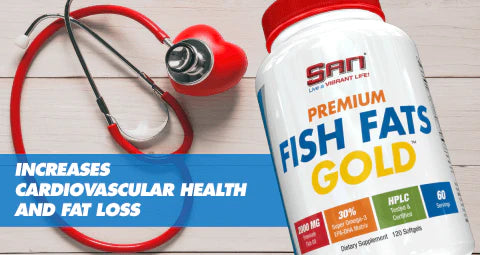Stress is everywhere in our lives. Whether it's from work, school, relationships, finances, or any other source, stress is inevitable. And the more stress you deal with or the less you're able to cope with it, the more adverse the effects will be on your health. But there are ways to fight the effects of stress, which can lead to a longer, healthier, and happier life.
Eliminating stress altogether isn't realistic, and that wouldn't be a good thing anyway. At normal levels, stress can be a great source of creative problem solving and can teach you coping mechanisms. On the other hand, chronic stress is simply bad for your health and can lead to immune system issues, heart disease, inflammation, and weight gain or weight loss depending on your own coping mechanisms. With a reported 75% of adults suffering from high-stress symptoms, it's time for you to learn how to fight the effects of stress.
There are several ways to reduce stress and its negative effects...
Lifestyle
Your lifestyle can be a source of great stress, but it can also be modified to help alleviate and fight the effects of stress. If work, school, family, or any other part of your life is excessively stressful, find ways to reduce or at least cope with the effects.
Just bottling it up inside doesn't do any good whatsoever, and that method will cause serious problems down the road. Here are a few things you can do that might help you cope:
- Wake up earlier to give yourself more time during the day
- Set reminders to take a few moments for yourself throughout the day
- Use breathing exercises and/or meditation whenever you feel stress building
- Make a daily routine that allows you to unwind at the end of the day, whether it's reading, watching a show, hopping in a Jacuzzi, spending time with your family, or anything else that helps calm your mind and nerves
Diet
The foods you eat can have a significant effect on your stress levels, both negatively and positively. Here are just a few things to consider:
- Caffeine: This can be great if you need a mental or physical boost, but excessive caffeine can amplify feelings of stress and anxiety, so tread lightly during times of high stress
- Alcohol: Be extra cautious with this — many people believe a drink can help calm their nerves, but alcohol isn't something you want to rely on, as the long-term risks outweigh any temporary relief
- Comfort food: On the plus side, your favorite foods can give you a sense of relief and comfort, but the act of eating to fight stress can end up leading to overindulging and weight gain
- Sugar: Like comfort foods, sugar-based treats do more harm than good, as sugar can have negative effects on the brain and memory, and there's the inevitable sugar blues when your blood sugar crashes – not good
- Healthy foods: Eating a balanced diet with fruits, vegetables, nuts, seeds, and other whole foods will supply your body with the nutrition you need to feel good, and a well-balanced diet will give you the antioxidants needed to fight off the negative effects of stress on your body
Self-care
It's tough to set time aside for yourself these days. Between all the responsibilities in your life, you're also being inundated with information from your social media accounts. While it's great to be tuned in with what everyone else is doing, it's also too easy to absorb all that extra info as added stress in your own life. Set time aside for self-care,” these are a few of the best things you can do:
- Massage: Not that you need a good excuse to book a professional massage, but this is one of the best ways to reduce both physical and mental stress, so it should be easy to rationalize
- Exercise: Sure, this one takes effort, but whether it's weight training, yoga, CrossFit, jogging, biking, or walking, physical exercise is great for your heart and one of the most effective ways to relieve stress
- Hobbies: This is one that few people seem to set time aside for anymore, but fitting time in for a hobby is a great way to tune the world out and tune yourself in, even if it's just reading a book,” just don't start surfing on social media
- Intimacy: This is something that really shouldn't take any convincing at all, but it's shocking just how many people have their sex lives falling by the wayside — the hormone release alone is worth it, but the state of relaxation after spending "quality time with someone is hard to beat
Supplements
Even if you go out of your way to plan every detail of your daily diet, there are still plenty of nutrients you can use in supplemental form that can help control stress and reduce the negative effects of chronic stress.
- Hemp: No, we're not talking about smoking anything to get that kind of de-stressed, but hemp in supplemental form is well-known for its ability to temporarily relieve stress, and in full-spectrum extract form, there's not THC high to worry about. Get more info.
- Turmeric: Much more than just a seasoning, in higher doses, this ancient Ayurvedic medicine is used for many physical health benefits, but it's also reported to support an improved sense of well-being, reducing the negative emotional effects of high stress. Get more info.
- Melatonin: Many people who deal with high stress during the day find that they can't shut their minds off at night and end up with sleeping issues, but supplemental melatonin is a great solution as a safe and natural nighttime sleep aid for occasional restlessness without needing to resort to pharmaceutical sleep aids that can lead to grogginess. Get more info.
You can't avoid all stress, and why would you? That would lead to a horribly boring life. However, chronic stress can kill you... literally, so take steps to avoid excessive stress and reduce the negative impact on your health. Learn how to fight the effects of stress in a way that works best for you.













